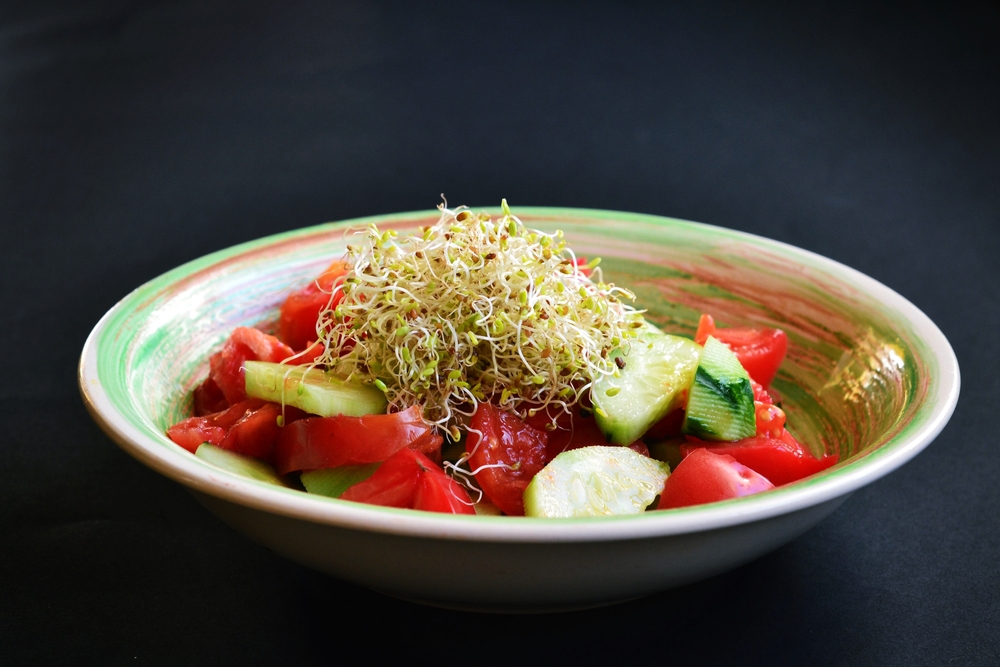Salmonella outbreak linked to raw alfalfa sickens over 500 in Europe

ECDC and EFSA warn at-risk groups to avoid eating raw alfalfa while the investigation into the widespread Salmonella outbreak continues.


Alfalfa is commonly used as a garnish or added to salads and sandwiches.
A “widespread” and “prolonged” Salmonella outbreak linked to sprouted alfalfa seeds has sickened more than 500 people across Europe over the past two years, prompting urgent investigations by public health authorities.
Alfalfa, also known as lucerne, is commonly used as a garnish or added to salads and sandwiches.
In a joint safety alert, the European Centre for Disease Prevention and Control (ECDC) and the European Food Safety Authority (EFSA) confirmed they had identified multiple Salmonella strains, including some “rarely seen in Europe.”
Between January 2023 and January 2025, 509 cases were reported across nine countries, with Norway recording 257 cases, Sweden 110, and Finland 94, alongside further cases in Germany, the Netherlands, Denmark, France, Belgium, Estonia and the UK.
Ongoing investigation
Using whole genome sequencing and food tracing, investigators linked the infections to sprouted alfalfa seeds supplied by a single Italian supplier. This supplier sourced seeds from three growers in the same region. However, the precise point of contamination has not yet been confirmed.
By sharing outbreak data at the EU level, particularly whole genome sequencing results, authorities were able to connect cases across borders to a single source.
Food safety authorities implemented control measures, including the withdrawal and recall of affected batches, which significantly reduced case numbers. However, several countries have continued to detect new cases, suggesting contaminated seeds may still be in circulation and that further interventions are required.
ECDC and EFSA advice
Salmonella can cause serious infections in vulnerable people, including those with weakened immune systems. In healthy individuals, symptoms can include fever, diarrhoea, nausea, vomiting and abdominal pain.
As a precaution, the ECDC and EFSA have advised the public to avoid eating raw alfalfa sprouts while investigations continue. “Those at risk should avoid eating sprouted seeds unless they have been cooked thoroughly,” the agencies said.
Meanwhile, sprouted seed producers are being urged to tighten food safety controls to prevent further contamination. Investigations remain ongoing to determine exactly how and where the contamination occurred.
Source: newfoodmagazine.com

